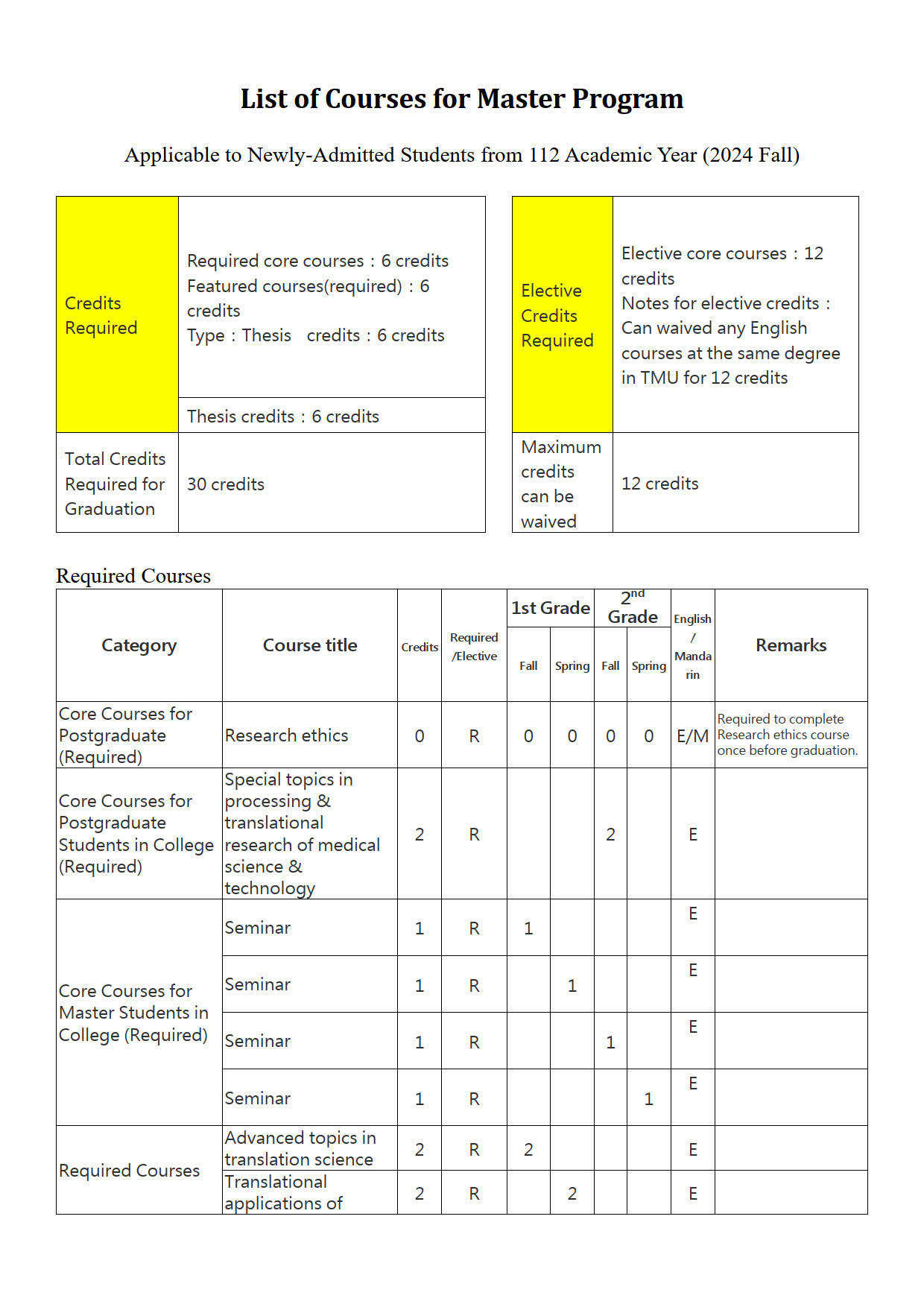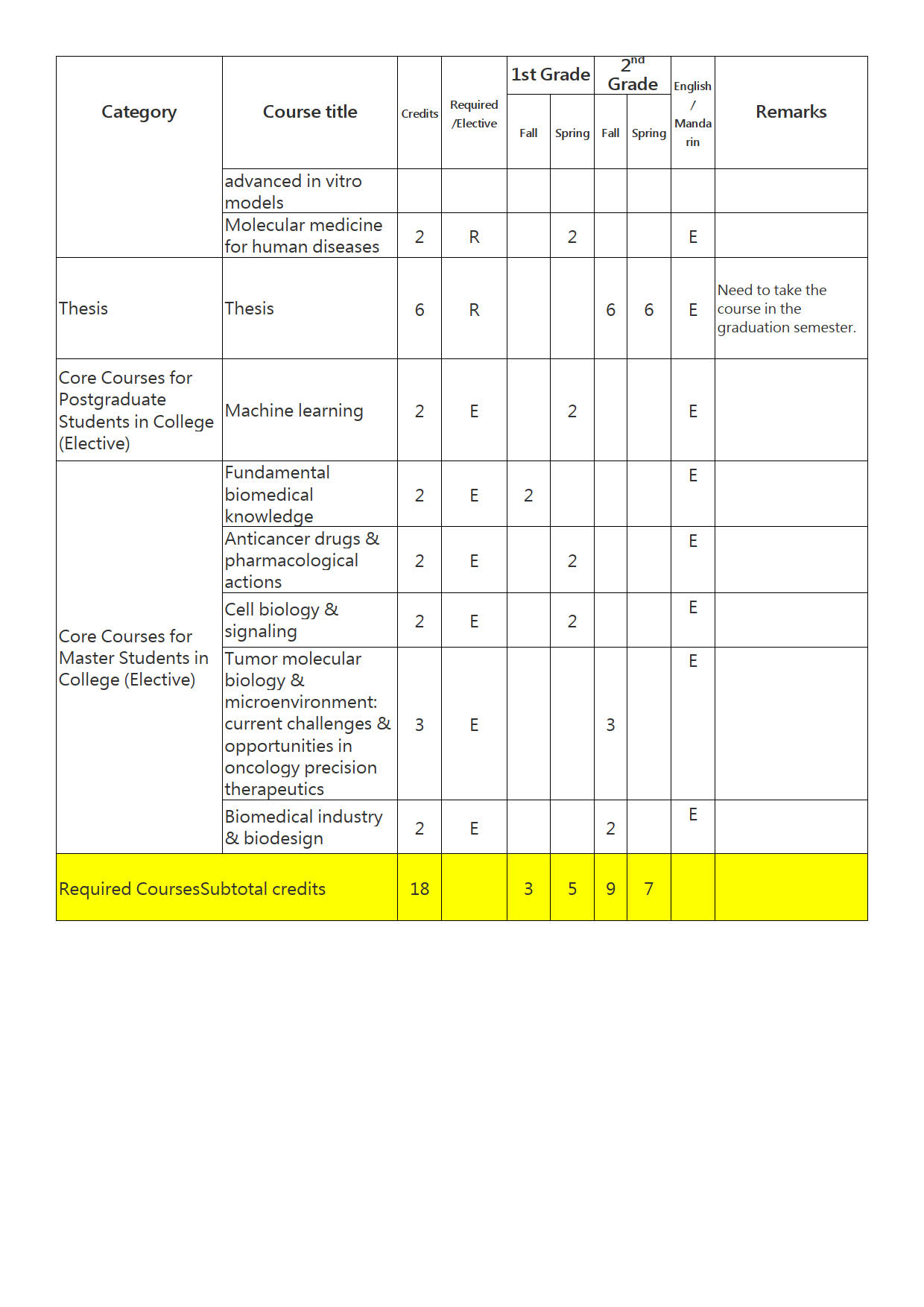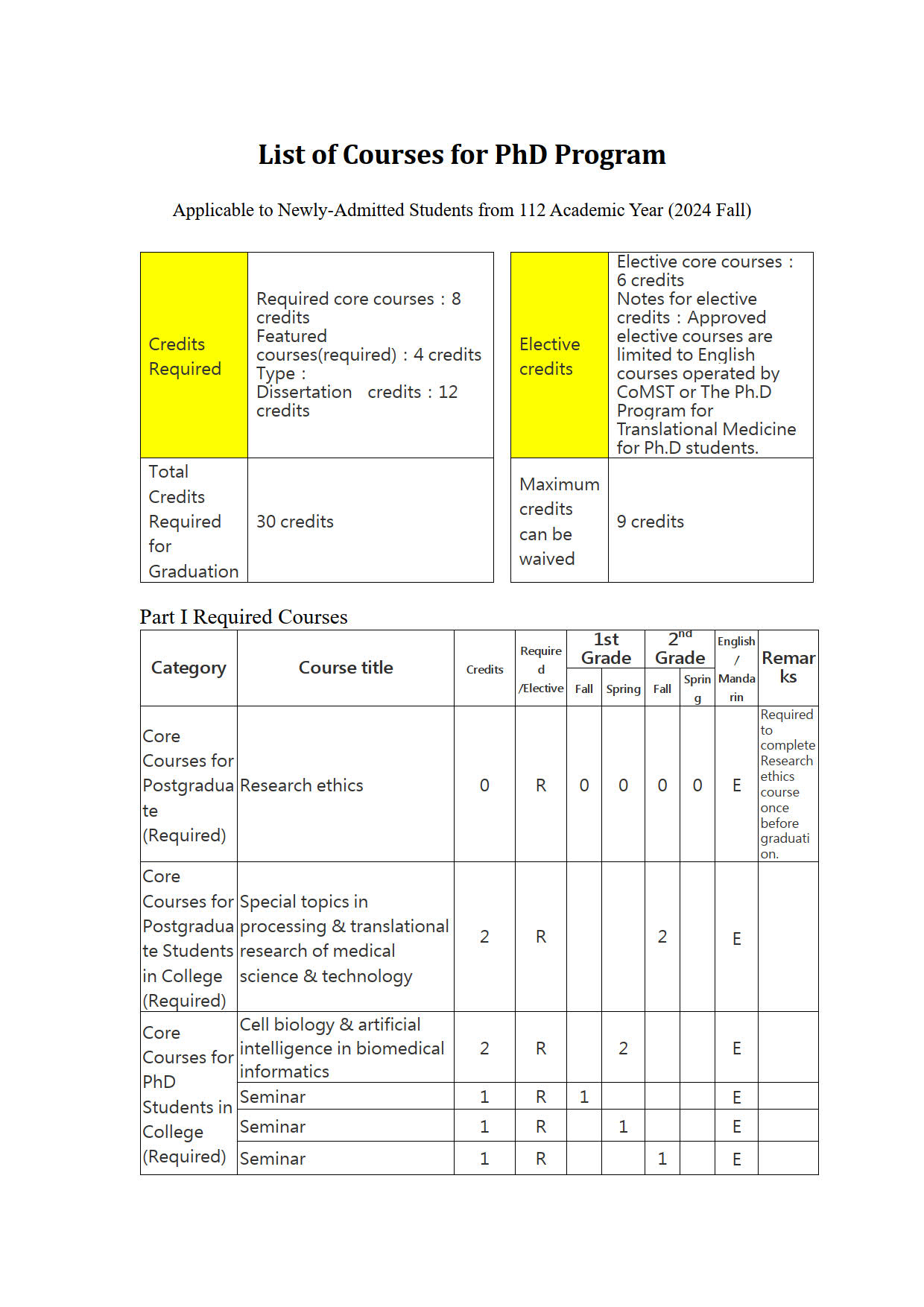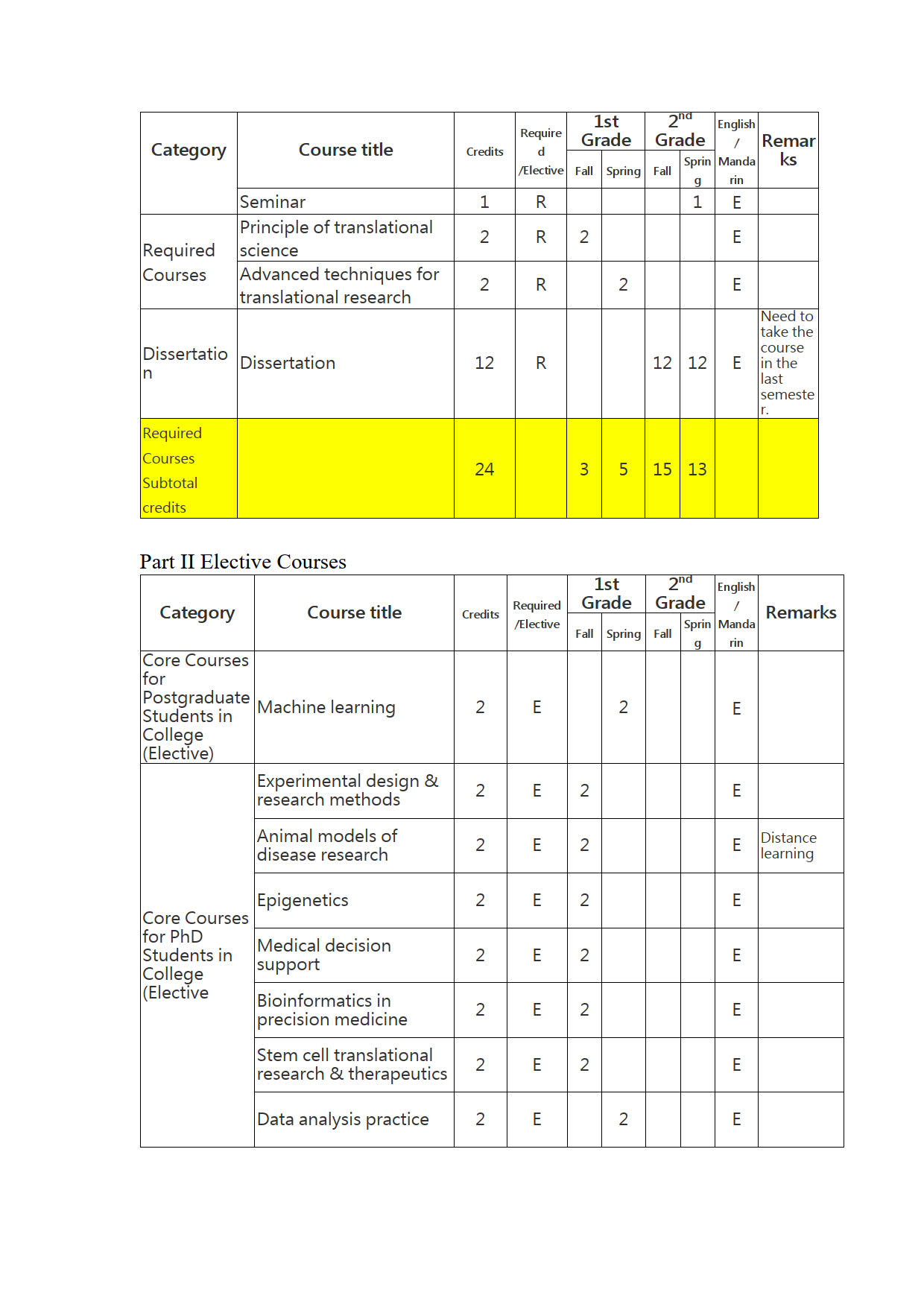Master Education Objectives
-
Interdisciplinary research on international perspective.
-
Talent with medical humanities literacy and sustainable development responsibilities.
-
The effective application of translational science on clinical demands and medical research.


Master Graduation Requirements
– Take a minimum of 30 credits of lecture courses and an additional 6 credits of thesis.
– Pass proposal defense.
– Publish 1 international conference paper or 1 journal paper.
– Pass thesis defense.
Ph.D.Education Objectives
-
To recruit and develop talents for translational research and management.
-
To promote translational research for the development of industrial biotechnology and conducting clinical trials on the global stage.

 Ph.D. Graduation Requirements
Ph.D. Graduation Requirements
– Take a minimum of 30 credits of lecture courses and an additional 8 credits of thesis.
-Students must pass QE for advancement to candidacy no later than the fifth semester.Students are only allowed to attend twice. Failure to pass QE on the second attempt means the student is subject to disqualification from further study for the doctoral degree.
– Publish 1 international conference paper or 1 journal paper.
– Pass thesis defense.






